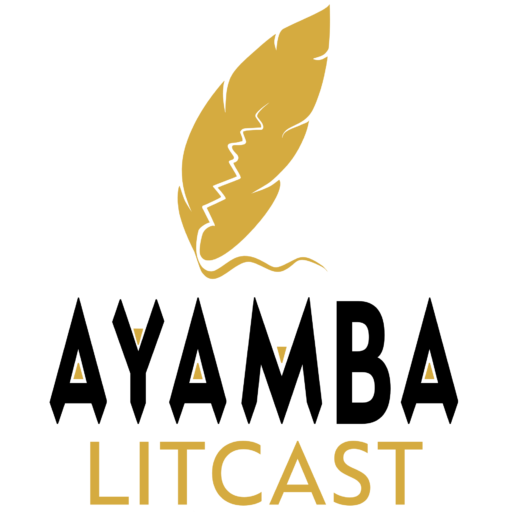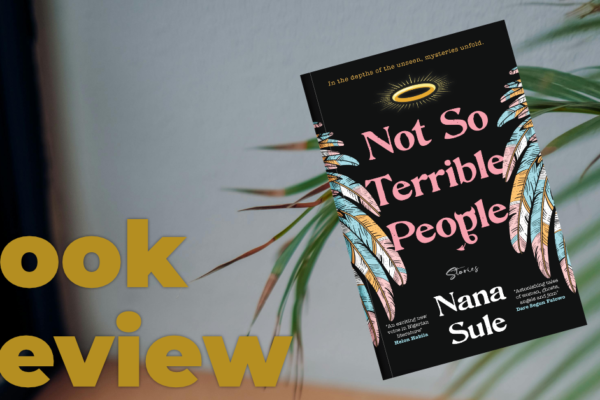
“Measuring time is a tale that can be read through the ages, subtle, and slow paced, it takes a bit of patience to go through until the end, but will always be a worthwhile endeavour.”
How do you measure time when it flies so fast that a decade feels like an hour? It is the beauty in Mamos’ writings, the curves in Lamamo’s drawings; it is the story of two boys, turned men in a world that is as cruel as it is beautiful. It is the endurance that comes with knowing that a loved one awaits. It is the true telling of history when seasons turn and you stay stagnant over the decades. This is how Mamo does it; he watches the passage of time and counts the years with Lamamo’s letters from the war. He counts the days until he can have Zara in his arms. Mamos’ entire life is a slow trekked path of piety and despair.
Mamo and Lamamo, two fraternal twins born in the tension fraught 1960s in a small farming village in Nigeria are different, yet so intertwined that the story of one cannot in good conscience be told without the story of the other. Surrounding their lives are the tales of all those they come in contact with, from callous, uncaring Lamang, their father, to beautiful Zara that is a spot of light twined in shadows, to the fierce protective Aunt Miriam and others. The characterization is stunning in its authenticity with every character unique, which when brought altogether blooms into more than just a story, but a collective tale of a place, a people’s voice shouting out from the void.
Told through Mamo’s perspective, the story is long and slow paced, intermittently distracted as is Mamo himself. It carries the taint of Mamo’s melancholy with sparks of adventure bursting out in the form of Zara and Lamamo. Sickly from childhood, Mamo is left behind from their dreams of eternal fame and adventures, when his twin, Lamamo and his cousin Asabar left for the neighbouring war-torn countries. Mamo languishes in his despair until he finds his way again in the form of literature. Teaching at the community school, he discovers history and the intricacies of love in the face of his childhood friend, Zara. This leads him to his own adventures, of intrigue, love and danger that spark in the most unforeseen circumstances.
Lamamo’s journey, we see in the sporadic letters shared between him and his twin, and what little news Asabar brought back from the war.
The book spans decades, taking us through the growth of the twins, from childhood to adulthood. Their growth and maturity is shown gradually in the little things, from Mamo’s reflectiveness to Lamamo’s disillusionment with the wars he fights.
The beauty of the narration is the simple yet poetic way Mamo sees the world; the way he views people around him with a detached if not apathetic understanding yet, fierce when the time calls for it.
While not entirely plot savvy, the characters created in this book bring to it a light that shines on the stilted story line. It carries on and on with no apparent end or rhythm, then abruptly cuts off in a hurried ending. I can’t help but think Lamamo’s arc is neglected. There are numerous potential plot points that have been left untapped, which would have given the story a more vicious undertone. Even Mamo, the protagonist, has a somewhat blurry outline as a character.
In Measuring Time, Helon Habila touches every part of our lives and spins through the problems cascading on the country with the practised ease of someone who has studied the patterns of our behaviours and instincts. Violence and war are given precedence; and there is an enthralling flow of emotions in the story that belies the problems the boys face.
As a historian, Mamo envisions the story of his people, the ultimate history. Mamos’ story is the story of his life, his losses and grievances, his despair and what has given him happiness. His is a part of a nation’s collective, a speck in the vast universe that is history.
Measuring time is a tale that can be read through the ages, subtle, and slow paced, it takes a bit of patience to go through until the end, but will always be a worthwhile endeavour.
Book: Measuring Time
Author: Helon Habila
Publisher: W. W. Norton (2007)
Pages: 383
The reviewer, Habiba Malumfashi has her bio in the members’ profile section.








